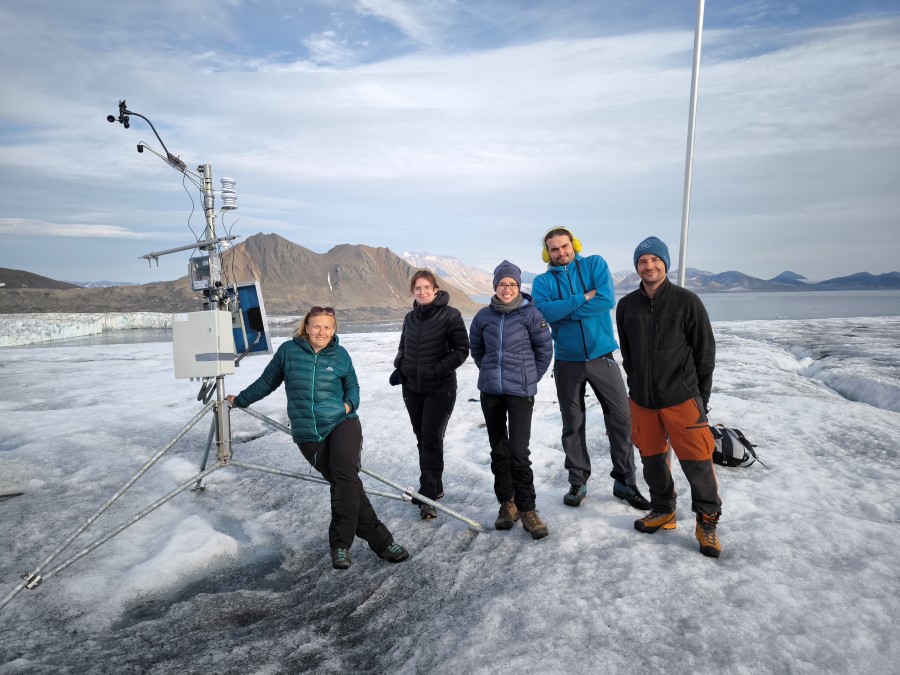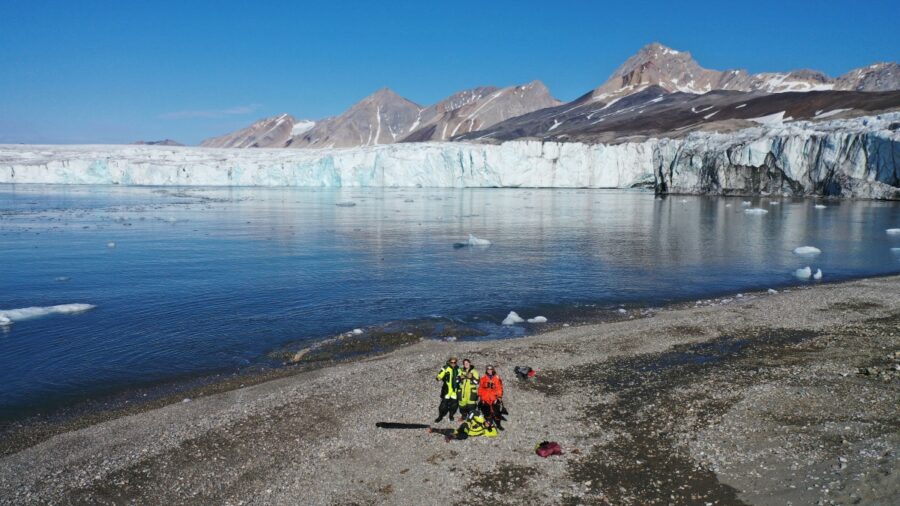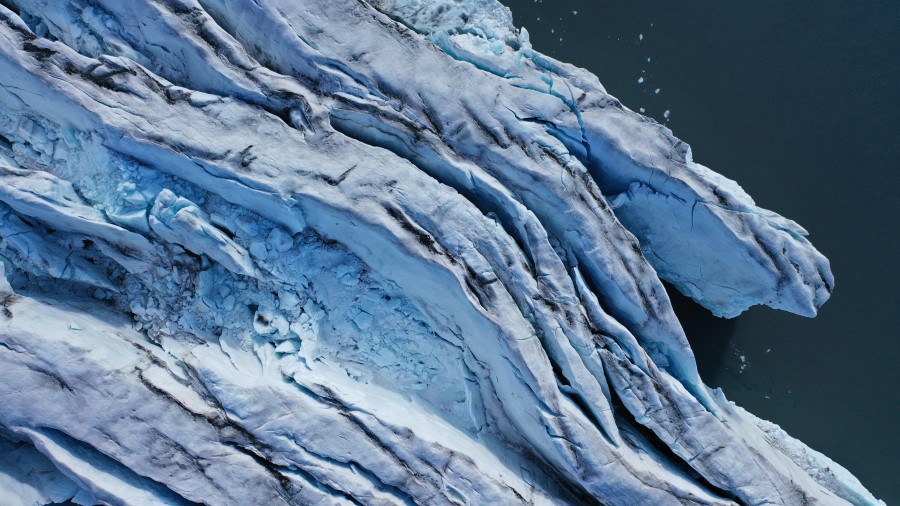From 2 to 20 August 2024, a team of researchers from the Centre for Polar Studies of the University of Silesia in Katowice is taking part in an interdisciplinary polar expedition to Svalbard.
This year’s expedition is another step in understanding the complex processes taking place in the polar regions in the era of climate change. The research will contribute to deepening knowledge about the evolution of glaciers and their impact on the environment, and will also be important for forecasting future changes in the Arctic.
The expedition is attended by Michał Ciepły, PhD, Elżbieta Łepkowska, PhD, Aleksandra Osika, MSc, Natalia Łatacz, MSc and Dawid Saferna, PhD.

The work carried out during this year’s expedition focuses on several issues.
The experts’ first goal is to understand how changes in the vicinity of glaciers affect the terrain and the local ecosystem. To investigate this, scientists conduct detailed geomorphological mapping, i.e. they analyse the landforms around glaciers such as Werenskioldbreen, Nannbreen, Austre and Vestre Torellbreen.
Another key task is to resume monitoring of the frontal ablation of the Hans Glacier, i.e. the melting processes of snow and ice in its frontal zone. For this purpose, a special measurement point was installed to monitor the glacier’s drainage system, containing time-lapse cameras and sensors for surface speed, water pressure and temperature.
An important issue for the expedition is also finding the answer to the question of how the physical and chemical parameters of the polar environment, such as water balance and sediment transport to the sea, change. For this purpose, researchers are installing a hydrological station on the river draining the Werenskiold Glacier. Thanks to this, they can constantly monitor the water flow and sediments carried by the river, which allows for a better understanding of the processes taking place in glaciated catchments.
The final goal of the expedition is to validate remote monitoring (remote sensing) techniques. To achieve this, scientists carry out precise geodetic measurements of the glacier forefields and photogrammetric raids using a drone.

The project implements the tasks of a research project financed by the National Science Centre under the Preludium grant (2021/41/N/ST10/02070), the main goal of which is to reconstruct the extent of glaciers and the environment of southern Svalbard during the Holocene Climatic Optimum. The expedition is part of the Priority Research Areas of the University of Silesia in Katowice: Environmental and climate changes with the related social challenges. Additionally, during the expedition, research projects of doctoral students of the the International Environmental Doctoral School are carried out.
The research is carried out in accordance with the regulations of the Governor of Svalbard, and the expedition has been registered in the RiS database under the numbers 10511 A17 (CSP) and 12003 A3 (NCN Preludium, A. Osika). The expedition receives support from the BERA logistics and science centre and the CRIOS project – Cryosphere Integrated Observation Network on Svalbard. Scientific work is carried out based on the infrastructure of the Polish Polar Station in Hornsund and the Stanisław Baranowski Polar Station in Spitsbergen.

Photo by Natalia Łatacz





